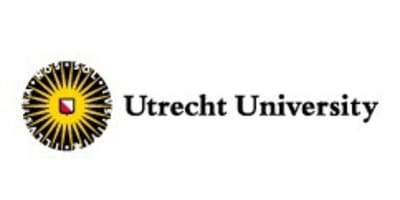
Master of Science in Epidemiology Postgraduate Online
Utrecht University

Key Information
Campus location
Utrecht, Netherlands
Languages
English
Study format
Distance Learning
Duration
3 - 5 years
Pace
Part time
Tuition fees
EUR 21,545 *
Application deadline
Request info
Earliest start date
Request info
* for the whole program for EU/EEA, Surinam or Swiss students; €31.125: for the whole program for International students
Scholarships
Explore scholarship opportunities to help fund your studies
Introduction
This globally oriented program focuses on competencies that you need as an epidemiologist: it offers plenty of attention for research but not just as a researcher - it also enables you to judge research and implement results from research.
The online learning concept
In the master of Epidemiology, you will have the unique opportunity to get your academic epidemiology degree simultaneous with a busy career and social life, as you will study part-time (14 hours per week). You receive personal guidance, interaction, and support during your study which consists of (interactive) web lectures, discussions, (group) assignments, expert sessions, quizzes, and the like.
Study anytime, anywhere 24/7
Online learning in the MSc Epidemiology Postgraduate Online program, enables you to study anytime, from any location in the world, as long as you have a working internet connection. We offer personalized online learning with lots of interaction with peer students, the E-moderator, and lecturers. You will study in the Elevate learning platform. To experience maximum interaction, we advise you to log in several times per week. The platform and learning materials are accessible 24/7.
The average required study workload for the courses of the program is 14 hours per week. You will need this time to study, to keep up with the assignments and with the course material. Note that the starting dates of courses, interim deadlines, and dates of exams are fixed, but you can choose when and where you want to watch web lectures and work on assignments. The e-moderator of the course will inform you about the beginning of the course and about deadlines during the course.
Ideal Students
The MSc Epidemiology program is designed for professionals already working in the field who would like to further develop their research skills. The program also provides a strong foundation for scientists starting a career in clinical or epidemiological research.
Program Outcome
The aim of the program is to provide you with extensive knowledge and practical skills in patient-oriented research design, implementation, quantitative analysis, and its application to clinical medicine and public health. The gained knowledge and skills form a solid basis for health research and disease control programs.
Admissions
Curriculum
The program consists of core courses (20 EC), specialization courses (14 EC), and a research project (56 EC).
Core courses
You will start your MSc Epidemiology Postgraduate Online Master program with 8 core courses (20 EC). In your first year, you will learn all about the basic concepts of epidemiology and statistics. You will also have the opportunity to improve your general academic skills, such as writing high-quality research proposals or successfully presenting your academic poster at scientific congresses.
Specialization courses
During the first months of the program, you will choose your preferred specialization track. The program offers specialization tracks in Clinical Epidemiology, General Epidemiology, and Veterinary Epidemiology. In each of the tracks, you will study the required specialization courses. In addition to these courses, you will be able to choose from several elective courses to reach a total of 14 EC for your specialization track.
Research project
The research project is an individual project which is conducted within the research theme of departments and institutes from Utrecht University (UU) or University Medical Center Utrecht (UMC Utrecht). A staff member of Utrecht University, the UMC Utrecht of an affiliated institute will supervise the research project. Research may cover a wide variety of topics such as human or veterinary infectious disease, cardiovascular disease, oncology, pharmacology, occupational health risk, and many more topics of clinical or public health relevance. The projects may include fundamental or clinical-based research. The research project is finished by an oral presentation and by writing a scientific paper.